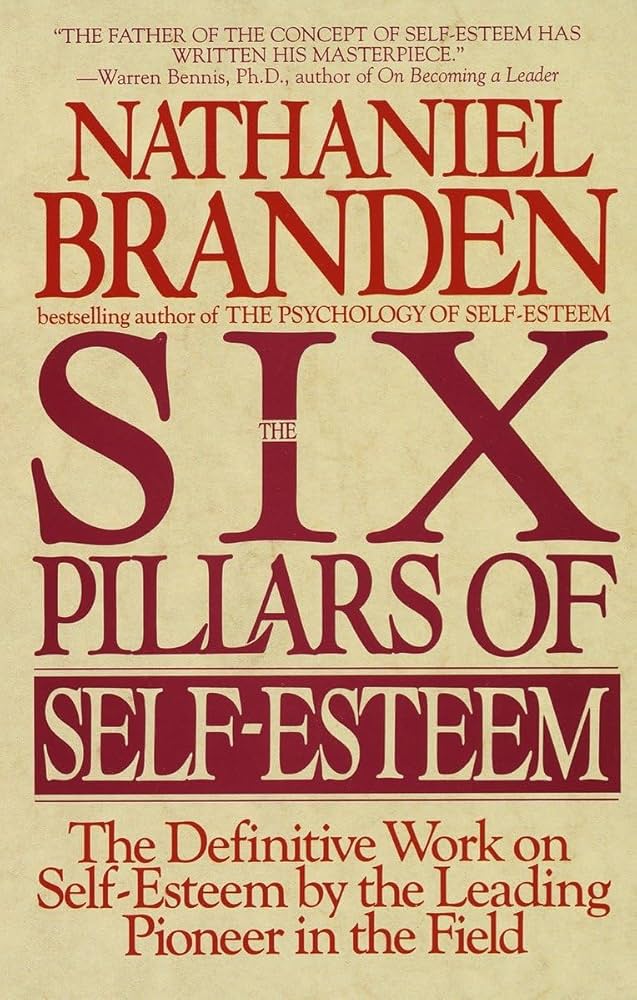I’ve been reading a book that’s really been helping me put things into perspective lately, and I wanted to share a bit of what I’ve been learning. It’s called The Six Pillars of Self-Esteem by Nathaniel Branden.

The book breaks down self-esteem into six practices, or “pillars,” that I think are really useful for anyone. Here’s a quick summary of each:
1. The Practice of Living Consciously
This is about being fully aware and present in your day-to-day life. It’s a reminder to tune into your thoughts, emotions, and actions, rather than just going through the motions. For me, this pillar is about not letting life pass by without noticing the choices I’m making and their impact.
2. The Practice of Self-Acceptance
Self-acceptance is about embracing who you are, including your flaws. It’s about stopping the constant self-criticism and giving yourself the grace to be human. I know this resonates with a lot of people, especially those who’ve struggled with feeling “different” or judged.
3. The Practice of Self-Responsibility
This pillar is about taking ownership of your choices and actions. It’s empowering when you start to realize that no one else is responsible for your happiness or success—it’s on you.
4. The Practice of Self-Assertiveness
This one, personally, is the most impactful for me right now. Self-assertiveness is about standing up for who you are and what you believe in, without apology. It’s not about being aggressive, but about refusing to shrink yourself to make others comfortable. This hits home because, like many of us, I’ve had moments where I felt like I had to hide parts of myself or go along with things just to avoid confrontation. But I’m realizing that when I do that, I lose touch with who I really am. Being assertive isn’t just about speaking up—it’s about living in alignment with my truth, even when it’s uncomfortable or unpopular.
5. The Practice of Living Purposefully
Living purposefully is about having direction in your life, setting goals, and working toward them. It’s a reminder that fulfillment doesn’t come from just drifting—you need to actively pursue the things that matter to you.
6. The Practice of Personal Integrity
Personal integrity means living in alignment with your values. It’s about doing what you say you’ll do and being honest with yourself and others. Integrity builds trust in yourself, which is key for building strong self-esteem. This one feels like a constant practice for me—living in a way that reflects my beliefs, even when it’s hard.
As I’m going through these pillars, it’s clear that self-assertiveness is the one I need to focus on the most. I’ve been reflecting a lot on how often I’ve stayed silent when I should’ve spoken up, or how I’ve sometimes pushed aside what I want in order to keep the peace. For me, reclaiming my voice and learning to assert myself—whether in relationships, at work, or in everyday situations—feels like a huge step toward building stronger self-esteem.
I’m planning to dig deeper into how self-assertiveness ties into some of the things I’ve been struggling with lately. It’s not easy, but I think this practice is the key to shifting how I approach my challenges moving forward. I’ll be writing more about this in my next post, and how I plan to use what I’ve learned to navigate some recent troubles.
If any of this resonates with you or you’ve read the book, I’d love to hear your thoughts.
Leave a Reply